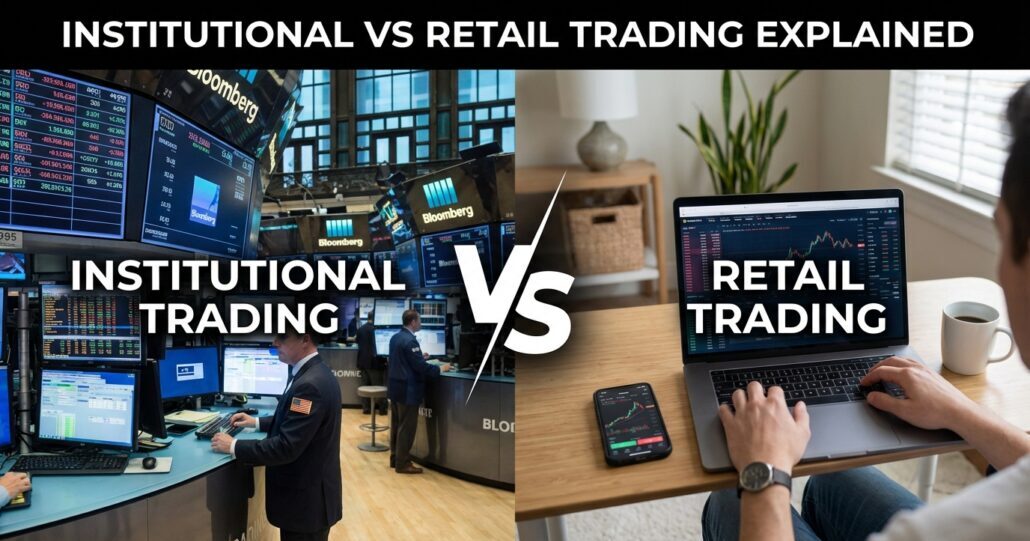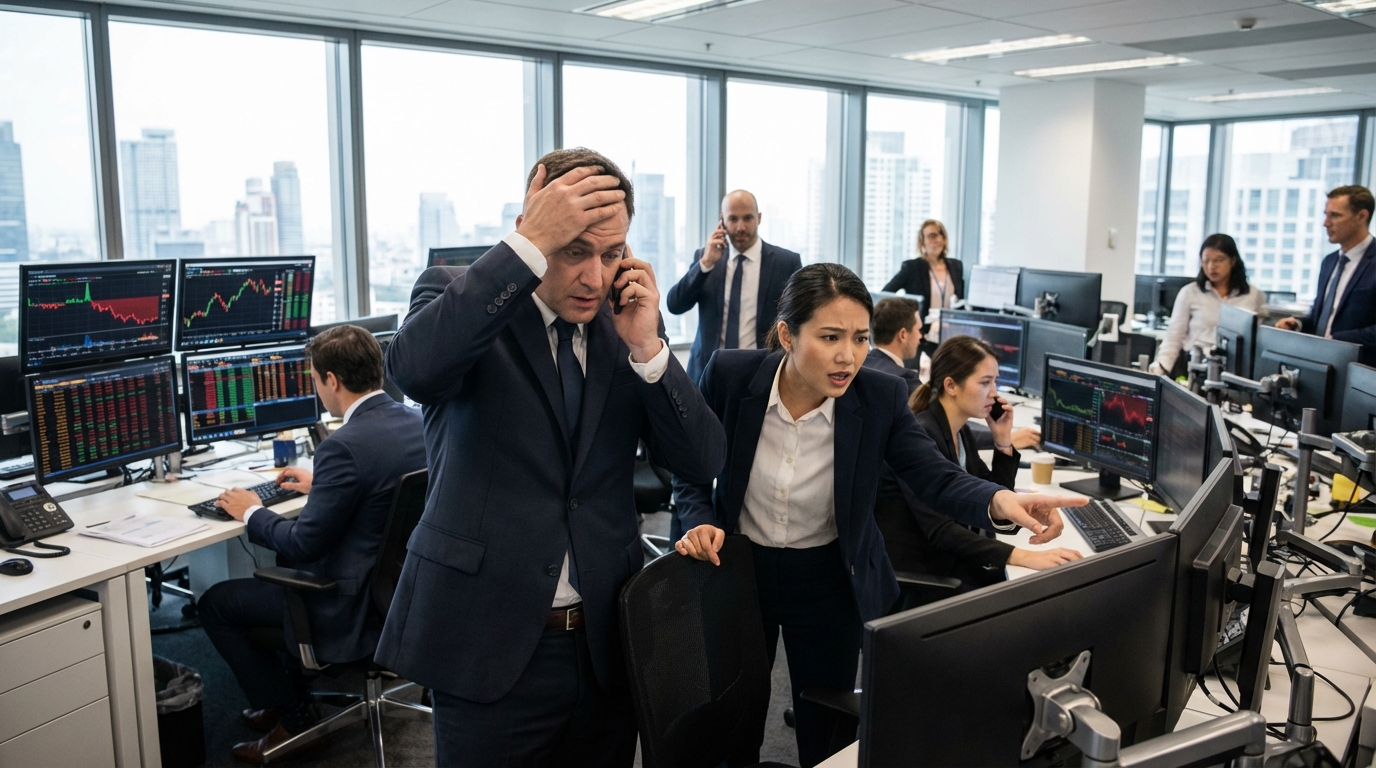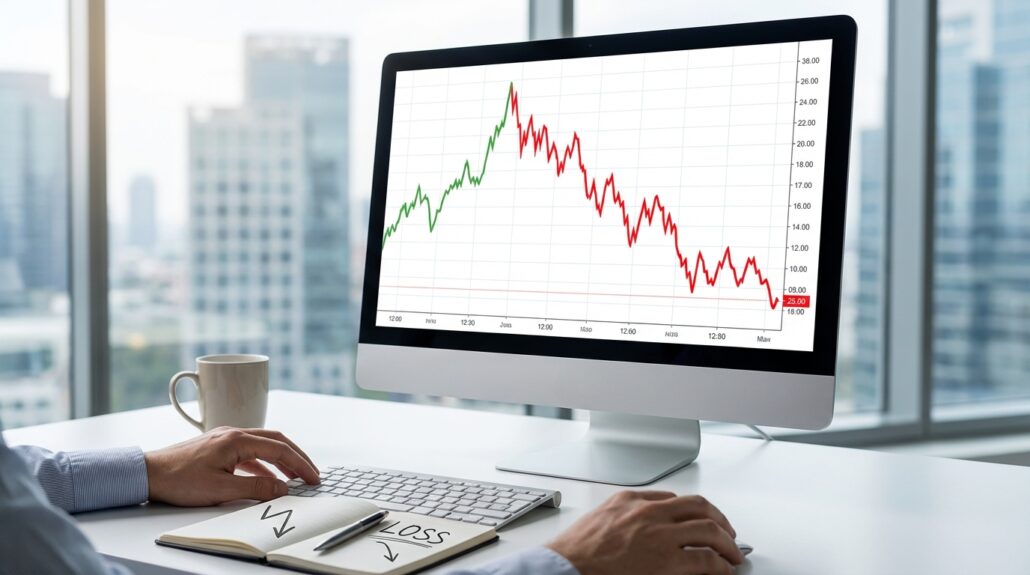Regulated vs. Unregulated Forex Brokers: What Traders Must Learn
 Sam Reid
Staff Writer
Sam Reid
Staff Writer 
Introduction
Foreign exchange is the largest financial market in the world, with daily turnover surpassing six trillion dollars according to the Bank for International Settlements. Such massive scale attracts both serious investors and opportunistic brokers. For newcomers, the marketing promises can feel overwhelming: some brokers highlight tight spreads, others push promotions or offer 1:2000 leverage. But the real factor that determines whether your trading journey will be secure or precarious is regulation.
Regulation is not glamorous, yet it is the most critical line of defense between a trader’s hard-earned capital and the pitfalls that exist in the market. Understanding the difference between regulated and unregulated brokers is a step every trader must take before funding an account.
Why Forex Regulation Exists
Regulatory oversight in financial markets emerged after the wave of scams during the commodity booms of the early twentieth century. In the United States, fraudulent “bucket shops” preyed on unsuspecting speculators, leading to the creation of agencies that enforced fair dealing and transparency. Over the decades, similar agencies formed worldwide with three main objectives:
- Safeguard client funds through requirements for segregation of accounts.
- Enforce transparency and fair execution so brokers cannot manipulate prices unchecked.
- Provide dispute resolution through legal channels and compensation schemes.
Today, regulators such as the U.S. Commodity Futures Trading Commission (CFTC), the U.K. Financial Conduct Authority (FCA), and the Australian Securities and Investments Commission (ASIC) set standards that licensed brokers must follow. These include regular audits, minimum capital requirements, and penalties for misconduct.
Although no regulator can prevent all broker failures, trading with a regulated entity dramatically lowers the risk of losing funds through fraud or negligence.
The Nature of Unregulated Brokers
Unregulated brokers typically establish themselves in jurisdictions with little oversight. Some small island nations offer licenses for minimal fees and impose few if any requirements on how client money is handled. Such brokers may:
- Mix client funds with company capital, exposing traders to unnecessary risks.
- Operate a dealing desk that takes positions against clients without disclosure.
- Cut costs by avoiding liquidity providers, leading to poor execution quality.
- Offer extremely high leverage to attract customers while increasing the likelihood of client losses.
While these practices reduce operating expenses and allow unregulated firms to advertise bold incentives, they create significant counterparty risk for traders. If the broker fails, disappears, or refuses withdrawal requests, clients have almost no legal recourse.
Tangible Protections of Regulated Brokers
One of the clearest advantages of choosing a regulated broker is fund security. Many regulators mandate strict separation of client deposits from company operating accounts. For example, the FCA requires licensed firms to place client funds in segregated trust accounts.
Even in the event of a broker’s bankruptcy, compensation schemes often exist. The Financial Services Compensation Scheme in the U.K. covers up to £85,000 per client. In Cyprus, the Investor Compensation Fund reimburses up to €20,000. These safety nets provide an additional layer of protection that unregulated entities cannot match.
Leverage Rules and Risk Management
Leverage is one of the most powerful yet dangerous aspects of forex trading. Regulators impose caps to prevent retail traders from suffering catastrophic losses. The European Securities and Markets Authority and the FCA restrict leverage to 1:30 on major currency pairs, while ASIC allows 1:30 on majors and 1:20 on minors.
By contrast, unregulated brokers frequently promote leverage of 1:500 or even 1:2000. While such high ratios can produce outsized gains on small price moves, they also leave accounts vulnerable to wipeouts from sudden swings. Worse, many unregulated brokers do not protect traders from negative balances, meaning clients could end up owing money beyond their initial deposits.
Execution Quality and Transparency
Execution speed and fairness are essential for profitability. Regulated brokers must publish reports that disclose slippage, re-quotes, and their top execution venues. In Europe, for example, RTS-28 reports make it harder for brokers to hide poor practices.
Research shows that the fastest regulated brokers in 2025 achieve execution speeds of around 30 milliseconds. Such transparency gives traders confidence that their orders are filled fairly.
Unregulated brokers, on the other hand, rarely disclose execution statistics. During volatile news events, traders may encounter repeated re-quotes, delayed fills, and off-market prices that erode profits.
The Hidden Costs of Cheap Brokers
At first glance, unregulated brokers appear cheaper because they avoid compliance costs. But when effective costs are calculated—including slippage, withdrawal fees, and the risk of funds being withheld—the picture changes.
A practical formula to evaluate all-in costs is:
All-in cost = Spread + Commission + Slippage + Financing ± Promotions
While regulated brokers may charge slightly higher spreads or commissions, they often deliver better results after slippage is considered. Traders can verify this through small live tests or by reviewing broker execution reports. Unregulated firms usually keep such data hidden.
Due Diligence Checklist for Traders
Before depositing funds, traders should perform a basic verification process:
- Check the regulator’s register. Search the broker’s legal name on the FCA, NFA, ASIC, or other official sites.
- Confirm license numbers. Ensure the license displayed on the broker’s website matches the public register.
- Review office details. Verify addresses using official directories or mapping services. Many shell companies list coworking spaces or post boxes.
- Examine financial statements. Reputable brokers often publish audited reports.
- Verify compensation scheme membership. A genuine broker will be part of an investor protection fund.
Failing any of these checks should be treated as a red flag.
Common Red Flags of Unregulated Brokers
Patterns frequently reported among unregulated brokers include:
- Promises of risk-free bonuses that are impossible to withdraw without extreme trading volumes.
- Customer support emails hosted on free domains like Gmail or Yahoo.
- Pressure to use unverified payment processors or cryptocurrencies exclusively.
- Frequent relocation of headquarters between obscure jurisdictions.
These characteristics do not always indicate fraud, but they drastically increase the likelihood of problems.
Offshore Branches of Regulated Firms
Some established brokers operate both onshore and offshore divisions. They may use the offshore entity to advertise higher leverage while keeping the main brand under strict regulation. This tactic, called regulatory arbitrage, can mislead traders who believe they are protected.
Always double-check which legal entity your account is registered under. Funding the regulated arm is safer, even if it means accepting lower leverage.
Real Trader Experiences
Traders who have dealt with unregulated brokers often share stories of blocked withdrawals, manipulated trading histories, and sudden platform failures. Forum discussions reveal how frustrating it becomes when there is no authority to contact for resolution.
By contrast, clients of regulated brokers like IG or FOREX.com highlight benefits such as transparency, continuity, and clear tax reporting in the United States. Although even large brokers may receive complaints about customer service, their accountability to regulators ensures that disputes can be escalated.
Broader Considerations Beyond Regulation
While regulation should be the top factor in broker selection, traders also benefit from evaluating:
- Demo accounts. A free demo with live-market conditions is essential for practice.
- Range of markets. Access to indices, commodities, and cryptocurrencies allows diversification.
- Trading tools. Platforms like MetaTrader 4 and 5, along with economic calendars and risk calculators, enhance decision-making.
- Education and research. Brokers that provide expert analysis and learning resources demonstrate an understanding of client needs.
- Independent reviews. Comparing brokers through third-party reviews helps verify reputation.
When combined with regulatory safeguards, these elements form the foundation for finding the best broker for online trading.
Why Regulation is Cost-Effective
Some traders argue that regulation is expensive and reduces broker flexibility. But the true cost lies in the risks posed by unregulated entities. Losing a deposit due to broker misconduct is far more damaging than paying slightly higher spreads.
Regulation creates a framework of trust. Knowing that a broker cannot arbitrarily block withdrawals or alter trades allows traders to focus on strategies rather than worrying about solvency.
FAQs
What is the difference between regulated and unregulated forex brokers?
Regulated brokers operate under the oversight of financial authorities, which enforce rules on fund segregation, execution transparency, and dispute resolution. Unregulated brokers operate without accountability, often in offshore jurisdictions, and expose traders to higher risks of fraud and loss.
What broker do most forex traders use?
Popular choices among global traders include IG, Exness, Oanda, and brokers regulated by top-tier authorities like the FCA, ASIC, or CFTC. Preferences vary by region, but most professionals stick with firms that are strongly regulated.
Do forex traders need a license?
Individual retail traders do not need a license to trade forex for themselves. However, brokers and firms that provide forex trading services must be licensed in the jurisdictions where they operate.
What is the importance of trading with a regulated broker?
Trading with a regulated broker ensures that client funds are protected, execution practices are monitored, and there is legal recourse if disputes arise. It reduces counterparty risk and increases the likelihood of a fair trading environment.
Conclusion
The decision between regulated vs unregulated forex brokers is not simply a matter of preference; it determines the safety of your funds and the fairness of your trading experience. Regulation provides structured safeguards, while unregulated firms operate in a void where traders shoulder all the risk.
While unregulated brokers may lure traders with promises of high leverage or generous bonuses, the hidden costs and dangers far outweigh the perks. For any trader serious about longevity, choosing a regulated broker is not just prudent but essential. The best broker for online trading is one that combines transparent regulation with strong tools, fair costs, and reliable support.
In a market as fast-moving and competitive as forex, regulation ensures that your capital is not the weakest link in your trading journey.
Disclaimer: Remember that forex and CFD trading involves high risk. Always do your own research and never invest what you cannot afford to lose.
 12th Sep 2025
12th Sep 2025









